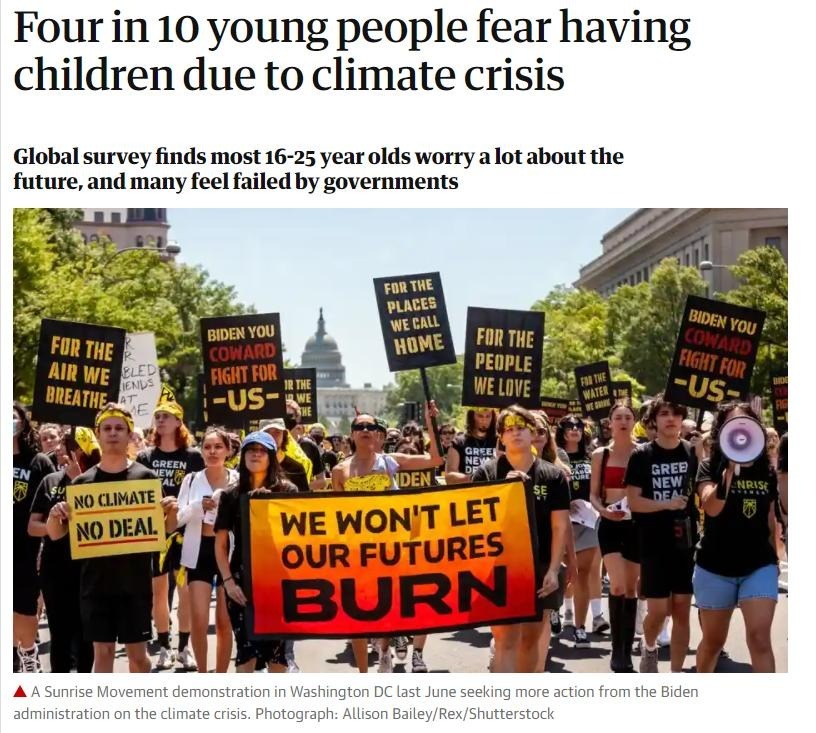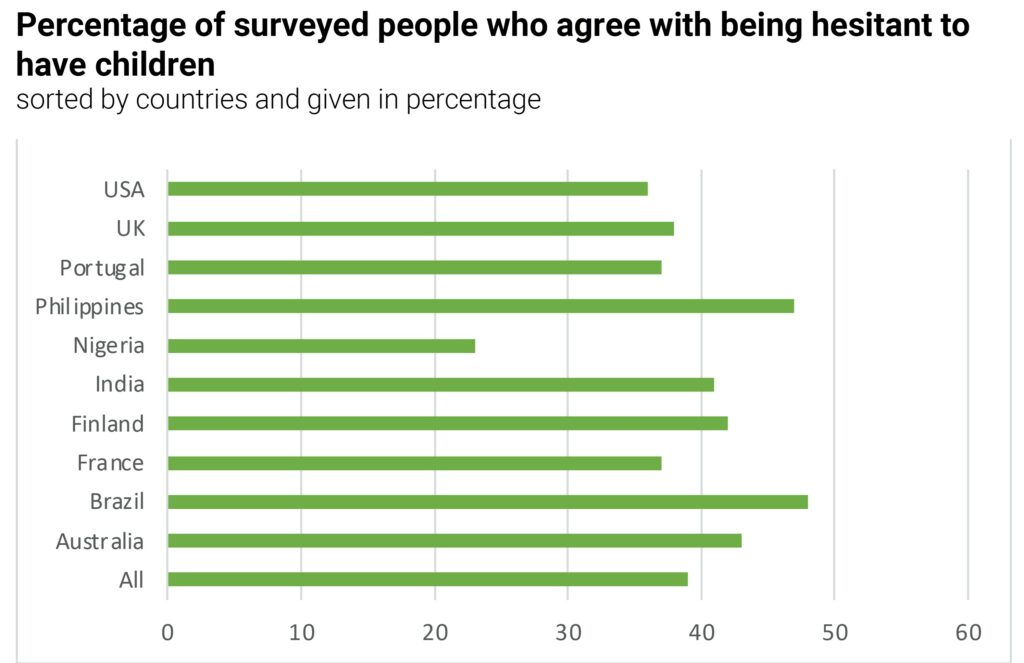The British news service The Guardian claimed that “Four in 10 young people fear having children due to climate crisis“. The news service is referring to an international study that surveyed young people in 10 countries. The claim came out to be mostly true.
For the article The Guardian used findings from a study that will soon be officially published. This is the largest study to date, entitled “Young people’s voices on climate anxiety, government betrayal and moral injury: a global phenomenon” and it is a cooperation between nine scientists. According to the study’s introduction it “aimed to better understand the feelings, thoughts and functional impacts associated with climate change among young people globally”. The authors collected data from 10 000 people aged 16-25 years, by using the online survey tool Kantar. The survey took place in 10 selected countries which include the UK, Finland, France, USA, Australia, Portugal, India, Brazil, Philippines, and Nigeria. These countries were chosen to represent different cultures, incomes, climates, climate vulnerabilities, and exposure to differing intensities of climate-related events.

How do young people feel due to climate change?
In general, the study analyzed climate-related anxiety, worry, functional impact, emotions, and thoughts. Furthermore, they asked how climate change and the current responses of their government impact their trust in the government. For example, 65 percent of the participants claim they feel that their government is failing young people. In the study itself, the data summarized that “many endorsed a range of negative emotions, with over 50 percent of respondents saying they had felt afraid, sad, anxious, angry, powerless, helpless, and/or guilty”. One of the questions was whether the participants are hesitant to have children because of climate change. In the chart below you can see the respective distribution of the responses in each country.

A clear result… but not a clear result
In an interview Elouise E. Mayall, one of the authors of the study and a master student in Ecology, explained that due to the study the claim is correct. But she made clear that she and her colleagues avoided the term “global”. Although the study was large and tried to be as representative as possible of the whole world, it is still not possible to make a general statement about it. Because of limited money for the study or the fact that not all young people have access to a computer and internet, it is impossible to talk about a global percentage of 39 percent who fear having children due to climate crisis.
Young people are more anxious about the future
Emma Lawrance, Mental Health Innovations Fellow at Institute of Global Health Innovation, and co-author of the briefing paper “The impact of climate change on mental health and emotional wellbeing: current evidence and implications for policy and practice” states that “people who are more worried about climate change and the environment, and the corresponding impacts on humanity, sometimes feel this so strongly that it impacts their decisions on having children”. However “the reported numbers of 40 percent of young people being hesitant to have children because of climate change is really high”. Therefore one can say that the climate crisis and the corresponding anxiety have a clear connection to thoughts about the future and the willingness to have children. This stands in favor of the truthfulness of the claim.
Conclusion
Like Dr. Emma Lawrance stated: “This study is the largest of its kind to date, and more international than other studies of its kind. However, of course there are caveats that this may not be the final number representing how young people feel across the whole world.” Therefore the claim can be considered true regarding the study but from a global perspective, however, the claim is only mostly true.
Leave your comments, thoughts and suggestions in the box below. Take note: your response is moderated.
RESEARCH | ARTICLE © Annika Reinker, Lina-Britt Bajorat and Paulina-Louise Bombel | Jade University of Applied Sciences Wilhelmshaven, Germany





